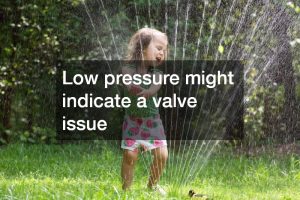

Few things are as important as fire protection. Interior designers can spend weeks selecting appliances, hardware, and common place furnishings for large apartment complexes; construction crews can spend months trimming cabinets up, applying second and third coats of paint, and drywalling; and renters can wait nearly a half of a year or more for the perfect apartment to become available. All of these efforts may be in vain, however, if the fire alarm installation does not occur. And while families from California to Colorado hope and pray for protection from the devastating wild fires that are defining the Summer of 2016, apartment owners in urban areas around the country hope and pray that their personal items will be protected from a fire caused by someone else’s carelessness.
Unfortunately, renters who live in apartment complexes, patients who have long stays in healthcare facilities, and travelers who stay in hotel rooms are at the mercy of every other person in their building or facility. Because of the danger of loss of life to a large group of people, fire alarm installation and inspection is monitored by both state and governmental agencies. And while a builder might decide to take the less expensive option when it comes to selecting the kind of faucets and handles that are used in a bathroom sink, fire codes and fire regulations mandate much about what is required in fire alarm installation. Commercial fire sprinkler systems, for example, are not only inspected when a building is first build, they are also required to have follow up inspections in order for that building to continue to function.
How Safe Is the Building Where You Live and Work?
Theoretically, there should be no shortcuts when it comes to fire safety and fire prevention. Especially in buildings were a number of people work or live, the fire safety of a unit is paramount. And, with good reason. Did you know, for instance, that the National Fire Protection Association (NFPA) has no record of a fire that has killed more than two people in a completely sprinklered building if the system was properly operating. On the flip side, buildings without properly maintained and inspected fire safety equipment can threaten the lives of residents, patients, and workers.
The hotel association, for instance, must follow strict standards when it comes to the proper installation of fire safety and prevention equipment. Unfortunately, hotel and motel fires cause an estimated 15 deaths and 150 injuries every year. In addition, hotel and motel fires result in $76 million in property loss every year. The damages and losses, however, could be much greater if it were not for fire safety measures. The insurance industry, as well as local and state fire inspectors, do everything within their power to make sure that hotels and motels follow the strictest safety guidelines when it comes to fire prevention.
Healthcare Systems Must be Especially Diligent about Fire Protection
Hospitals, elderly care facilities and other healthcare sites have to be extra careful about the fire precautions that they take. Not only are these locations full of individuals who may be bed ridden and unable to care for themselves, hospitals also have a number of highly flammable materials like oxygen. Being able to quickly detect and stop a fire is important to every healthcare facility in the country. As a result, these healthcare systems are self inspected on a regular monthly basis, as well as inspected to state officials on a fairly regular basis.
The combination of automatic sprinklers and early warning systems in healthcare facilities, like all other high occupancy buildings, can reduce overall injuries, loss of life, and property damage by as much as 50%. And while early warning systems and automatic sprinklers are necessary, it is also necessary that every building have a safety plan in place. Unfortunately, a recent survey indicated that of 119 businesses, only 35% of them had any kind of fire evacuation plan in place. Without a safety plan, early warning systems and sprinkler systems may fail to save lives. Every time a fire alarm installation inspection occurs, it is also important for all key personnel to make sure that all staff understand the planned evacuation routes documented procedures.






